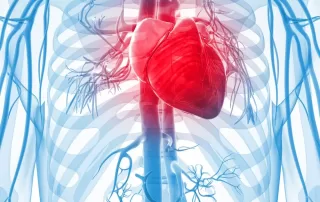High Cholesterol
Welcome to Qoctor’s online doctor service which can provide assessment for high cholesterol (statins). Answer some online questions, then book a consultation with an AHPRA-registered doctor. Repeats available (subject to assessment).
The consultation fee is $29.99. If a prescription is advised, it can be sent as an eScript to your phone OR electronically to your local pharmacy. Alternatively you can have medication delivered by an Australian partner pharmacy- in this case, the cost of medication is added at the checkout. All treatment and advice is issued subject to your doctor’s assessment.
About High Cholesterol
- There are different types of cholesterol. LDL cholesterol is sometimes known as “bad cholesterol” as it can contribute to blockages in blood vessels, and is linked to a higher risk of vascular disease, such as heart attack and stroke.
- The decision to start a medication for high cholesterol depends on a person’s overall risk of heart disease and stroke (cardiovascular disease)- it’s different for different people.
- Good cardiovascular health involves managing all your risk factors- ensuring you have a healthy weight, normal blood pressure, adequate exercise, good nutrition , avoid smoking and if you have diabetes, ensuring it’s well controlled. Maintaining satisfactory cholesterol levels is just one part of overall risk management.

FAQs about High Cholesterol
- Yes, there are different forms of cholesterol.
- LDL cholesterol is sometimes known as “bad cholesterol” as it is linked to a higher risk of vascular disease, such as heart attack and stroke. This is because high LDL cholesterol (along with other risk factors such as smoking and high blood pressure) can lead to blockages in blood vessels.
- HDL cholesterol is also known as “good cholesterol” as it helps to transport cholesterol out of the bloodstream- higher levels of HDL cholesterol are associated with a lower risk of heart disease.
- If you have a blood test to check your cholesterol (also known as lipids), the results will usually include measurement of total cholesterol, LDL, HDL and triglycerides.
There are a few factors:
- Genetics- high cholesterol tends to run in some families.
- Diet- certain foods can cause increases in LDL cholesterol
- fatty or processed meats
- biscuits, cakes & pastries
- snack foods like chips
- deep-fried foods
- many types of takeaway foods
- eggs and dairy foods in excessive amounts may be problematic for cholesterol, but many experts now advise that eggs and dairy eaten in moderation can benefit health in a variety of ways, and should not be eliminated altogether.
- Total cholesterol and LDL cholesterol (sometimes known as “bad cholesterol) tend to be the focus of discussion when blood tests are done.
- Normal total cholesterol is less than 5mmol/L
- Normal LDL is less then 3mmol/L, but basically, the lower the better.
- However, in people who have other risk factors (for example, diabetes), the ideal or target levels for total and LDL cholesterol are lower.
- HDL cholesterol should ideally be above 1.6mmol/L
- Australian guidelines state that it’s advisable to have a blood test to check your lipid (cholesterol) profile every 5 years, from the age of 45.
- Torres Strait Islanders and Aboriginal peoples should be tested every 5 years from the age of 35, as they have a higher risk of cardiovascular disease.
- How often you get retested after that depends on your results, and your other risk factors for cardiovascular disease.
Lifestyle changes are aimed at reducing all risk factors that contribute to cardiovascular disease, and include the following:
- Quit smoking. Smoking allows LDL cholesterol to enter blood vessel walls more easily and cause damage.
- Healthy eating
- Increase exercise. Regular exercise appears to increase HDL levels while reducing LDL and triglycerides.
- Ensure blood pressure is normal
- Maintain a healthy body weight
- Look after your mental health- people who have depression or who are socially isolated may have a higher risk of cardiovascular disease- speak to your GP if you think this applies to you.
- If you have diabetes, ensure that your blood glucose control is good, and attend your doctor for regular check ups.
- The decision to start a medication depends on a person’s overall risk of heart disease and stroke (cardiovascular disease)- it’s different for different people.
- A cardiovascular risk calculator can be used to figure out your risk of getting a heart attack or stroke in the next 10 years, based on your cholesterol results and other risk factors- this can help your doctor to decide if you’re low, moderate or high risk.:
- Low risk: If risk is low (less than 10% risk of heart attack or stroke in the next 10 years), then it’s reasonable to try lifestyle changes (see below) and retest in 5 years
- Moderate risk: If risk is moderate (10-15% risk of heart attack or stroke in the next 10 years), then lifestyle changes can be tried at first- if there is no significant improvement in cholesterol levels after 6 months of healthy lifestyle changes, medication may be considered. However, a decision may be made to go straight for medication if a person is in a high-risk group- for example if they are of South Asian, Pacific Islander, Maori, Middle Eastern, Aboriginal or Torres Strait Islander descent, or if they’ve a strong family history of heart attack or stroke in younger people. Lipids (cholesterol) blood tests should be repeated every 2 years in this group.
- High risk: If risk is high (over 15% risk of heart attack or stroke in the next 10 years), then both lifestyle changes AND medication should be considered. A lipid profile (cholesterol) blood test should be repeated every year.
- However, it’s important to note that some people are “high risk” purely because they have certain health issues, and may be advised to start cholesterol-lowering medication on this basis- for example if they have significant chronic kidney disease, complications from diabetes, high blood pressure (above 180mmHg systolic), familial hypercholesterolaemia, or total cholesterol above 7.5mmol.
Health Library- High Cholesterol
High cholesterol is a common issue. There are different types of cholesterol- LDL cholesterol is also known as ” bad cholesterol” as it can contribute to blockages in blood vessels, leading to heart disease and stroke. Other risk factors include high blood pressure, smoking, diabetes and inactive lifestyle- all of these need to be addressed to minimise your cardiovascular risk. Find out more about high cholesterol in health library below- including LDL, HDL, triglycerides and treatment options.
High Triglycerides- what are they and what harm can they cause?
High Triglycerides-what are they and what harm can they cause? Causes Difference Treatment Specialist What are triglycerides? Triglycerides are a common type of fat- in fact they make up about 95% of dietary fats, including animal and vegetable-based fats. As your body digests food, triglycerides enter the bloodstream, where they can be used as a source of energy to fuel the body. If not used up, they get stored in fat cells. If energy is needed between meals, it can be released from these fat stores. The average lean adult has approximately 15kg of triglycerides stored in their body- this can supply enough energy to last around 3 months! However, if you have an unhealthy diet, and tend to eat more calories than you burn, it may cause high triglycerides in your bloodstream- this is known as hypertriglyceridaemia. Request a medical certificate [...]
High cholesterol- who should be tested & when is treatment needed?
High Cholesterol- when is it a problem? Types Causes Levels Treatment We need cholesterol! First of all, it’s important to understand that cholesterol itself is not bad. In fact, it’s essential for life! Cholesterol is a fatty substance which is used by the body in many vital processes: to build cell membranes to make bile acids, which digest food to make hormones (like oestrogen and testosterone) to allow the body produce Vitamin D However, the body can make its own cholesterol- so you don’t need to get it from food sources. If you eat too much unhealthy fatty food, the cholesterol levels in your blood may increase and cause problems. What are the different types of cholesterol? There are different forms of cholesterol. LDL cholesterol is sometimes known as “bad cholesterol” as it is linked to a higher risk of vascular disease, such [...]
Would you recognise a heart attack?
Would you recognise a heart attack? what is it? symptoms what to do Would you recognise the symptoms of a heart attack? Every year, around 55,000 Australians get a heart attack, and about 9000 of these people die- that’s one per hour! In many cases, the heart attack comes out of the blue, with absolutely no warning signs beforehand. What is a heart attack? A heart attack is when a blockage occurs in one of the blood vessels that supply the heart with blood (the coronary arteries). Usually this happens because a cholesterol plaque has built up inside the artery over time- this build-up ruptures and causes a blood clot to form, leading to a blockage of the artery. The heart muscle cannot get oxygen, and starts to die. These days, if someone is having a heart attack there are highly effective clot-busting treatments [...]



